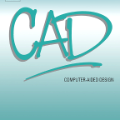Counterfactually-Augmented Data (CAD) -- minimal editing of sentences to flip the corresponding labels -- has the potential to improve the Out-Of-Distribution (OOD) generalization capability of language models, as CAD induces language models to exploit domain-independent causal features and exclude spurious correlations. However, the empirical results of CAD's OOD generalization are not as efficient as anticipated. In this study, we attribute the inefficiency to the myopia phenomenon caused by CAD: language models only focus on causal features that are edited in the augmentation operation and exclude other non-edited causal features. Therefore, the potential of CAD is not fully exploited. To address this issue, we analyze the myopia phenomenon in feature space from the perspective of Fisher's Linear Discriminant, then we introduce two additional constraints based on CAD's structural properties (dataset-level and sentence-level) to help language models extract more complete causal features in CAD, thereby mitigating the myopia phenomenon and improving OOD generalization capability. We evaluate our method on two tasks: Sentiment Analysis and Natural Language Inference, and the experimental results demonstrate that our method could unlock the potential of CAD and improve the OOD generalization performance of language models by 1.0% to 5.9%.
翻译:暂无翻译




